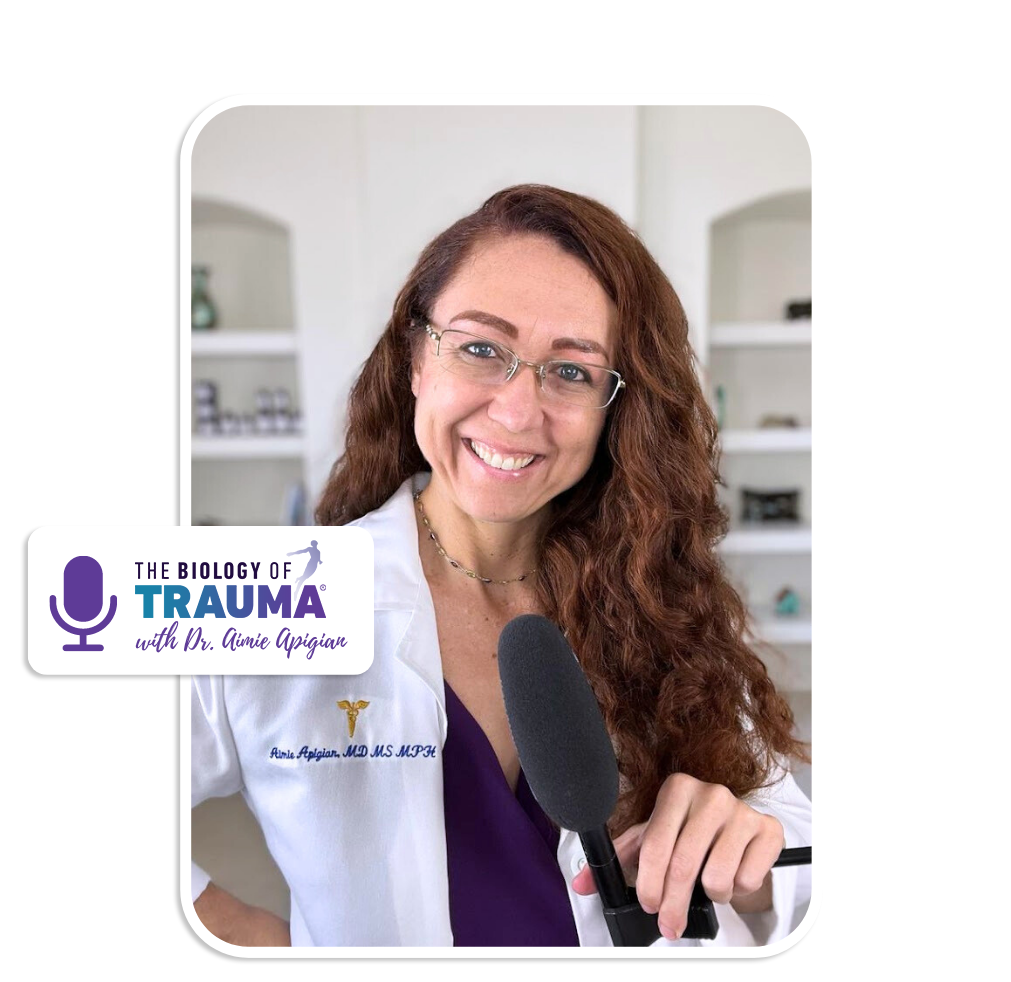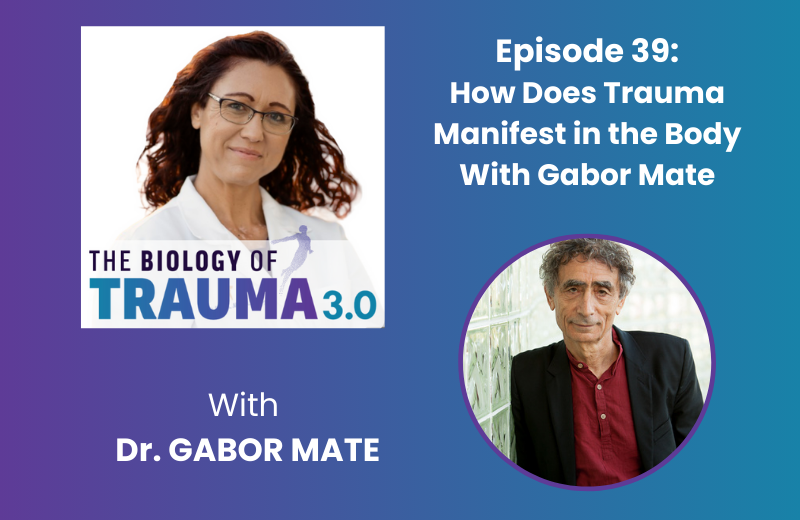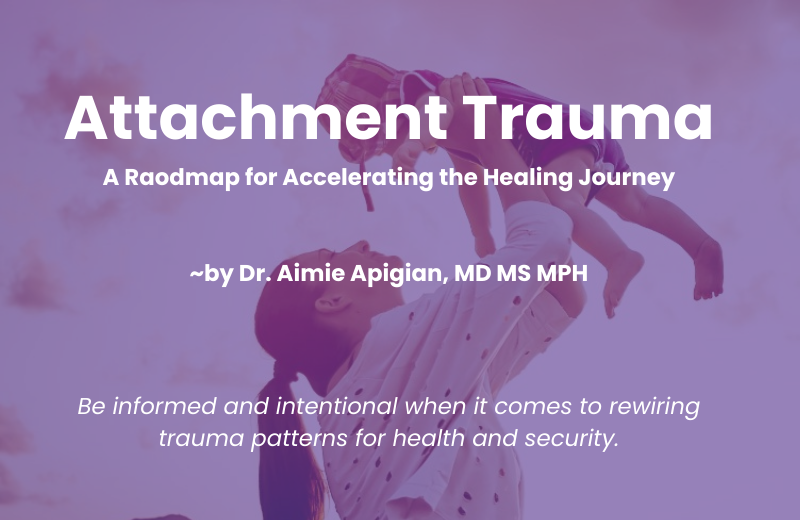
Biology of Trauma® Podcast
With Dr. Aimie Apigian
Episode 39: How Does Trauma Manifest in the Body With Gabor Mate

"..the first step is to kind of witness your body and where you're aware of these physiological shifts. And then the second phase is really the narrative you develop about those physiological responses. If you see it through a polyvagal lens, you see the reactions as trying to protect you.."
Show Notes:
When there are physical symptoms involved, that is what you will learn about how unresolved trauma manifests physically in the body, and we must be careful to start in the right way. In this episode, I have with me Dr. Gabor Mate, who is a leader in seeing the body expressing stress and trauma, a family medical physician who also worked in palliative care and addiction medicine, and the author of When the Body Says No and Hungry Ghosts. We will be answering the big question – How does unresolved trauma manifest physically in our bodies and how can understanding this connection lead to profound healing? So, where do we start?
- Virtually every chronic condition you ever deal with has a traumatic template to it [03:02]
- The role of dysregulation versus genetics in diseases [10:05]
- Stress and helplessness on a cellular level [14:58]
- The interplay of copper excess and relational trauma in postpartum depression [18:14]
- How unresolved trauma creates a disconnect with yourself and your body [25:22]
- Where to start to repair the disconnect [26:08]
- Illness as an attempt on the body’s part to wake you up to who you really are and what your needs really are [36:28]
- The role of community and your changing your world on the healing journey [38:30]
- The role of somatics and parts work addressing unresolved trauma in the body [43:25]
- How long it takes to start seeing results [53:36]
Interested to learn more about what I do? Click here.
Helpful Links:
Connect with me on social media
Products I recommend from this episode
Magnesium Calm – If you want your body to be calm then this supplement will help you
Comment Etiquette:
I want to hear from you! I would love to hear your thoughts on this episode and let’s make them constructive! A few requests: Please refrain from including URLs and using yours or someone else’s business name to steer clear of spam. Please do use your personal name or initials.
Let’s have a constructive, positive and productive discussion!
Drop your thoughts below about the episode! I want to hear from you.
Connect with me on social media
Foundational Journey
You. Calm. Alive.
Be safely guided step-by-step through the essential process for addressing stored trauma in your body.
Disclaimer:
By listening to this podcast, you agree not to use this podcast as medical advice to treat any medical condition in either yourself or others. Consult your own physician for any medical issues that you may be having. This entire disclaimer also applies to any guests or contributors to the podcast. Under no circumstances shall Trauma Healing Accelerated, any guests or contributors to The Biology of Trauma® podcast, or any employees, associates, or affiliates of Trauma Healing Accelerated be responsible for damages arising from the use of the podcast.





6 Responses
Your comment about some people wanting to hold on to their trauma caused me to wonder if the reason for doing that is related to something I read today about grief. The essence of the comment about grief was that some people hold on to their grief as a way to maintain a connection to their departed loved on. I wonder if some people might hold on to their trauma in order to maintain a connection to whoever created this trauma response in them? I realize there can be other reasons, but just wondered about this as a possibility.
Dr Aimie,
I’ve taken the 21 day journey with you and it’s been about 2 years ago. Listening to this has given me many reminders I needed. Much love , I’m so grateful for your work.
This podcast was shared with me from my sister-in-law and it was very helpful as my daughter started with physical issues 3 weeks ago requiring hospitalization. She is stress overloaded and they are working with her trauma. I’m excited to share this with my daughter and am encouraged that she could find a new start with your 21-day challenge. I’m even interested in maybe going through this along with her to support her in the process! Looking forward to purchasing some of Dr. Gabor Mate’s books. I know it’s a process so I definitely took away from the podcast to go slow. (Parents always want to “fix” their babies issues fast). Thank you for your desire to help those with trauma!
Frances B.
I studied PTSD at Energy Medicine University and did all the protocols on myself. I think that was my turn around to handle myself. Very simply, I put a thought stopper on an unwanted thought. Then, if I find myself open I used that space to forgive. To let it go. I’ve found my inner house is getting cleaner.
Do you work with 12 year old girls?
Hello! Thank you so much for reaching out. This is an automated response, but if you email customers@traumahealingaccelerated.com we can respond to you directly! Thanks so much for being here!!